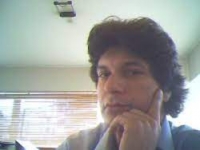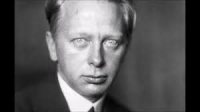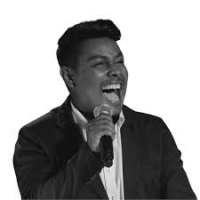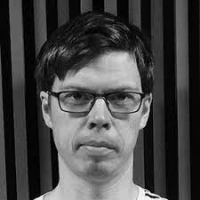Cello Sheet Music
 "I got a standard box. I don't never want nothing special. Then if I drop my box, I can borrow somebody else's." Wes Montgomery - Jazz Guitar (his
"I got a standard box. I don't never want nothing special. Then if I drop my box, I can borrow somebody else's." Wes Montgomery - Jazz Guitar (his
Siegfried Köhler
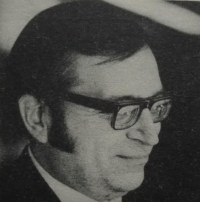
Siegfried Köhler (2 March 1927 in Meißen – 14 July 1984 in East Berlin) was a German composer in the German Democratic RepublicDuring World War II, Köhler worked with a musicians group (Spielschar) within the Hitler Youth organisation. After the end of the war, the Soviet secret police NKVD arrested him and charged him with being a member of the Werwolf. He was detained at the infamous prison Speziallager Nr. 4 in Bautzen. In March 1946 he was transferred into Speziallager Nr. 1 in Mühlberg and on 21 June 1946 he was handed over to the NKVD command in Dresden. He was released there suffering from tuberculosis. Köhler went on to study first Composition in Dresden and then musicology and Art history in Leipzig.
David Arnold

David Arnold is an English film composer whose credits include scoring five James Bond films, as well as Stargate, Independence Day, Godzilla and the television series Little Britain and Sherlock.
Marisa Sharon Hartanto
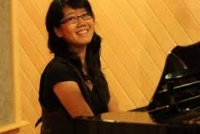
A composer, conductor and pianist, Marisa manages a music studio for children named Canzona Music School and co-founded Perempuan Komponis with 4 other ...
J. S. Bach
Johann Sebastian Bach (21 March 1685, O.S.31 March 1685, N.S. – 28 July 1750, N.S.) was a German composer, organist, harpsichordist, violist, and violinist whose sacred and secular works for choir, orchestra, and solo instruments drew together the strands of the Baroque period and brought it to its ultimate maturity. Although he did not introduce new forms, he enriched the prevailing German style with a robust contrapuntal technique, an unrivalled control of harmonic and motivic organisation, and the adaptation of rhythms, forms and textures from abroad, particularly from Italy and France.
Revered for their intellectual depth, technical command and artistic beauty, Bach's works include the Brandenburg Concertos, the Goldberg Variations, the Partitas, The Well-Tempered Clavier, the Mass in B minor, the St Matthew Passion, the St John Passion, the Magnificat, A Musical Offering, The Art of Fugue, the English and French Suites, the Sonatas and Partitas for solo violin, the Cello Suites, more than 200 surviving cantatas, and a similar number of organ works, including the famous Toccata and Fugue in D minor and Passacaglia and Fugue in C minor, as well as the Great Eighteen Chorale Preludes and Organ Mass.
Bach's abilities as an organist were highly respected throughout Europe during his lifetime, although he was not widely recognised as a great composer until a revival of interest and performances of his music in the first half of the 19th century. He is now generally regarded as one of the main composers of the Baroque style, and as one of the greatest composers of all time.
Revered for their intellectual depth, technical command and artistic beauty, Bach's works include the Brandenburg Concertos, the Goldberg Variations, the Partitas, The Well-Tempered Clavier, the Mass in B minor, the St Matthew Passion, the St John Passion, the Magnificat, A Musical Offering, The Art of Fugue, the English and French Suites, the Sonatas and Partitas for solo violin, the Cello Suites, more than 200 surviving cantatas, and a similar number of organ works, including the famous Toccata and Fugue in D minor and Passacaglia and Fugue in C minor, as well as the Great Eighteen Chorale Preludes and Organ Mass.
Bach's abilities as an organist were highly respected throughout Europe during his lifetime, although he was not widely recognised as a great composer until a revival of interest and performances of his music in the first half of the 19th century. He is now generally regarded as one of the main composers of the Baroque style, and as one of the greatest composers of all time.
Tchaikovsky

Pyotr Il'yich Tchaikovsky (May 7 1840 â November 6 1893) was a Russian composer of the Romantic era. While not part of the nationalistic music group known as "The Five", Tchaikovsky wrote music which, in the opinion of Harold Schonberg, was distinctly Russian: plangent, introspective, with modally-inflected melody and harmony.
Aesthetically, Tchaikovsky remained open to all aspects of Saint Petersburg musical life. He was impressed by Serov and Balakirev as well as the classical values upheld by the conservatory. Both the progressive and conservative camps in Russian music at the time attempted to win him over. Tchaikovsky charted his compositional course between these two factions, retaining his individuality as a composer as well as his Russian identity. In this he was influenced by the ideals of his teacher Nikolai Rubinstein and Nikolai's brother Anton.
Tchaikovsky's musical cosmopolitanism led him to be favored by many Russian music-lovers over the "Russian" harmonies and styles of Mussorgsky, Borodin and Rimsky-Korsakov.
Nonetheless he frequently adapted Russian traditional melodies and dance forms in his music, which enhanced his success in his home country. The success in St. Petersburg at the premiere of his Third Orchestral Suite may have been due in large part to his concluding the work with a polonaise. He also used a polonaise for the final movement of his Third Symphony.
Aesthetically, Tchaikovsky remained open to all aspects of Saint Petersburg musical life. He was impressed by Serov and Balakirev as well as the classical values upheld by the conservatory. Both the progressive and conservative camps in Russian music at the time attempted to win him over. Tchaikovsky charted his compositional course between these two factions, retaining his individuality as a composer as well as his Russian identity. In this he was influenced by the ideals of his teacher Nikolai Rubinstein and Nikolai's brother Anton.
Tchaikovsky's musical cosmopolitanism led him to be favored by many Russian music-lovers over the "Russian" harmonies and styles of Mussorgsky, Borodin and Rimsky-Korsakov.
Nonetheless he frequently adapted Russian traditional melodies and dance forms in his music, which enhanced his success in his home country. The success in St. Petersburg at the premiere of his Third Orchestral Suite may have been due in large part to his concluding the work with a polonaise. He also used a polonaise for the final movement of his Third Symphony.
Mozart

Wolfgang Amadeus Mozart, full name Johann Chrysostom Wolfgang Amadeus Mozart (27 January 1756 â 5 December 1791) was a prolific and influential composer of the Classical era. His over 600 compositions include works widely acknowledged as pinnacles of symphonic, concertante, chamber, piano, operatic, and choral music. Mozart is among the most enduringly popular of classical composers, and many of his works are part of the standard concert repertoire.
Mozart's music, like Haydn's, stands as an archetypal example of the Classical style. His works spanned the period during which that style transformed from one exemplified by the style galant to one that began to incorporate some of the contrapuntal complexities of the late Baroque, complexities against which the galant style had been a reaction. Mozart's own stylistic development closely paralleled the development of the classical style as a whole. In addition, he was a versatile composer and wrote in almost every major genre, including symphony, opera, the solo concerto, chamber music including string quartet and string quintet, and the piano sonata. While none of these genres were new, the piano concerto was almost single-handedly developed and popularized by Mozart. He also wrote a great deal of religious music, including masses; and he composed many dances, divertimenti, serenades, and other forms of light entertainment.
The central traits of the classical style can be identified in Mozart's music. Clarity, balance, and transparency are hallmarks of his work.
Mozart's music, like Haydn's, stands as an archetypal example of the Classical style. His works spanned the period during which that style transformed from one exemplified by the style galant to one that began to incorporate some of the contrapuntal complexities of the late Baroque, complexities against which the galant style had been a reaction. Mozart's own stylistic development closely paralleled the development of the classical style as a whole. In addition, he was a versatile composer and wrote in almost every major genre, including symphony, opera, the solo concerto, chamber music including string quartet and string quintet, and the piano sonata. While none of these genres were new, the piano concerto was almost single-handedly developed and popularized by Mozart. He also wrote a great deal of religious music, including masses; and he composed many dances, divertimenti, serenades, and other forms of light entertainment.
The central traits of the classical style can be identified in Mozart's music. Clarity, balance, and transparency are hallmarks of his work.
Maison Ikkoku

Maison Ikkoku (Japanese: めぞん一刻, Hepburn: Mezon Ikkoku) is a Japanese manga series written and illustrated by Rumiko Takahashi. It was serialized in Big Comic Spirits from November 1980 to April 1987, with the chapters collected into 15 tankōbon volumes by Shogakukan. Maison Ikkoku is a bitter-sweet romantic comedy involving a group of madcap people who live in a boarding house in 1980s Tokyo. The story focuses primarily on the gradually developing relationships between Yusaku Godai, a poor student down on his luck, and Kyoko Otonashi, a young, recently widowed boarding house manager.
Traditional

David Mallamud
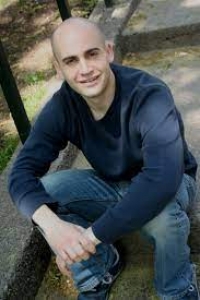
David Mallamud is a MacDowell Fellow, a Dramatist Guild Fellow, A Leonard Bernstein Fellow (Tanglewood), A Fred Ebb, Jonathan Larson Award, and Richard Rodgers Award finalist, a recipient of a Broadway World Album Award, two ASCAP Morton Gould Awards, and a Charles Ives Scholarship from The American Academy of Arts and Letters. He has composed for venues ranging from Carnegie Hall to Off-Broadway, where his music for the recent production of Flight School: The Musical was lauded by Laurel Graeber of the New York Times as the show’s “biggest boon . . . worthy of bigger stages, variously embracing classical lyricism, pulsing pop, the poignant ballad and at least one all-out, Alice Cooper–style rock rant.”
Mitsumune Shinkichi
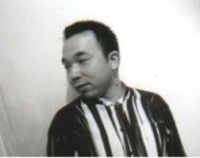
Shinkichi Mitsumune (光宗 信吉 Mitsumune Shinkichi) (born October 8, 1963) is a Japanese composer who writes music primarily for anime.
Mitsumune is a native of Fukuoka City in Fukuoka Prefecture and a graduate of Rikkyo University with a degree in business. He started studying music at the age of 4. After graduating from college, he toured music festivals across Japan as a keyboardist for a Marine band, and later for musicians such as Yukie Nishimura. Starting in 1995, he lent his skills to composing anime and movie scores with a full orchestra.
Mitsumune is a native of Fukuoka City in Fukuoka Prefecture and a graduate of Rikkyo University with a degree in business. He started studying music at the age of 4. After graduating from college, he toured music festivals across Japan as a keyboardist for a Marine band, and later for musicians such as Yukie Nishimura. Starting in 1995, he lent his skills to composing anime and movie scores with a full orchestra.
Schumann

Robert Schumann, sometimes given as Robert Alexander Schumann, (June 8, 1810 – July 29, 1856) was a German composer, aesthete and influential music critic. He is one of the most famous Romantic composers of the 19th century.
He had hoped to pursue a career as a virtuoso pianist, having been assured by his teacher Friedrich Wieck that he could become the finest pianist in Europe after only a few years of study with him. However, a hand injury prevented those hopes from being realized, and he decided to focus his musical energies on composition. Schumann's published compositions were, until 1840, all for the piano; he later composed works for piano and orchestra, many lieder (songs for voice and piano), four symphonies, an opera, and other orchestral, choral and chamber works. His writings about music appeared mostly in the Neue Zeitschrift für Musik ("The New Journal for Music"), a Leipzig-based publication that he jointly founded.
In 1840, after a long and acrimonious legal battle with his piano instructor Friedrich Wieck, Schumann married Wieck's daughter, pianist Clara Wieck, a considerable figure of the Romantic period in her own right. Clara Wieck showcased many works by her husband as well. For the last two years of his life, after an attempted suicide, Schumann was confined to a mental institution.
He had hoped to pursue a career as a virtuoso pianist, having been assured by his teacher Friedrich Wieck that he could become the finest pianist in Europe after only a few years of study with him. However, a hand injury prevented those hopes from being realized, and he decided to focus his musical energies on composition. Schumann's published compositions were, until 1840, all for the piano; he later composed works for piano and orchestra, many lieder (songs for voice and piano), four symphonies, an opera, and other orchestral, choral and chamber works. His writings about music appeared mostly in the Neue Zeitschrift für Musik ("The New Journal for Music"), a Leipzig-based publication that he jointly founded.
In 1840, after a long and acrimonious legal battle with his piano instructor Friedrich Wieck, Schumann married Wieck's daughter, pianist Clara Wieck, a considerable figure of the Romantic period in her own right. Clara Wieck showcased many works by her husband as well. For the last two years of his life, after an attempted suicide, Schumann was confined to a mental institution.
Bach

Johann Sebastian Bach (31 March 1685 – 28 July 1750) was a German composer and organist whose sacred and secular works for choir, orchestra, and solo instruments drew together the strands of the Baroque period and brought it to its ultimate maturity. Although he introduced no new forms, he enriched the prevailing German style with a robust contrapuntal technique, an unrivalled control of harmonic and motivic organisation in composition for diverse musical forces, and the adaptation of rhythms and textures from abroad, particularly Italy and France.
Revered for their intellectual depth and technical and artistic beauty, Bach's works include the Brandenburg concertos; the Goldberg Variations; the English Suites, French Suites, Partitas, and Well-Tempered Clavier; the Mass in B Minor; the St. Matthew Passion; the St. John Passion; The Musical Offering; The Art of Fugue; the Sonatas and Partitas for violin solo; the Cello Suites; more than 200 surviving cantatas; and a similar number of organ works, including the celebrated Toccata and Fugue in D Minor.
While Bach's fame as an organist was great during his lifetime, he was not particularly well-known as a composer. His adherence to Baroque forms and contrapuntal style was considered "old-fashioned" by his contemporaries, especially late in his career when the musical fashion tended towards Rococo and later Classical styles. A revival of interest and performances of his music began early in the 19th century, and he is now widely considered to be one of the greatest composers in the Western tradition.
Revered for their intellectual depth and technical and artistic beauty, Bach's works include the Brandenburg concertos; the Goldberg Variations; the English Suites, French Suites, Partitas, and Well-Tempered Clavier; the Mass in B Minor; the St. Matthew Passion; the St. John Passion; The Musical Offering; The Art of Fugue; the Sonatas and Partitas for violin solo; the Cello Suites; more than 200 surviving cantatas; and a similar number of organ works, including the celebrated Toccata and Fugue in D Minor.
While Bach's fame as an organist was great during his lifetime, he was not particularly well-known as a composer. His adherence to Baroque forms and contrapuntal style was considered "old-fashioned" by his contemporaries, especially late in his career when the musical fashion tended towards Rococo and later Classical styles. A revival of interest and performances of his music began early in the 19th century, and he is now widely considered to be one of the greatest composers in the Western tradition.
Francisco Manuel da Silva
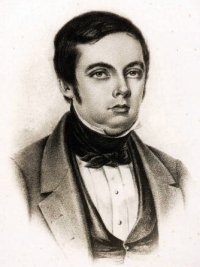
Francisco Manuel da Silva (21 February 1795 – 18 December 1865) was a songwriter and music professor. He was born and died in Rio de Janeiro. He had great prominence in the musical life of Rio de Janeiro in the period between the death of José Maurício Nunes Garcia and Antônio Carlos Gomes. He was a singer of Capela Real since 1809, and later a cello player. He was one of the founders of Imperial Academia de Música e Ópera Nacional (National Imperial Music and Opera Academy), of Sociedade Beneficência Musical e Conservatório Imperial de Música, which became Instituto Nacional de Música (Nacional Music Institute) and is called Escola de Música da Universidade Federal do Rio de Janeiro (Rio de Janeiro University Music School).
Apocalyptica

Apocalyptica is a Finnish cello metal band, composed of classically trained cellists and, since 2005, a drummer. Three of the cellists are graduates of the Sibelius Academy in Helsinki, Finland. Their music features elements from classical music, neo-classical metal, thrash metal, and symphonic metal.
Schubert

Franz Peter Schubert (January 31, 1797 – November 19, 1828) was an Austrian composer. He wrote some 600 lieder, nine symphonies (including the famous "Unfinished Symphony"), liturgical music, operas, and a large body of chamber and solo piano music. He is particularly noted for his original melodic and harmonic writing.
While Schubert had a close circle of friends and associates who admired his work (including his teacher Antonio Salieri, and the prominent singer Johann Michael Vogl), wider appreciation of his music during his lifetime was limited at best. He was never able to secure adequate permanent employment, and for most of his career he relied on the support of friends and family. Interest in Schubert's work increased dramatically in the decades following his death and he is now widely considered to be one of the greatest composers in the Western tradition.
While he was clearly influenced by the Classical sonata forms of Beethoven and Mozart (his early works, among them notably the 5th Symphony, are particularly Mozartean), his formal structures and his developments tend to give the impression more of melodic development than of harmonic drama. This combination of Classical form and long-breathed Romantic melody sometimes lends them a discursive style: his 9th Symphony was described by Robert Schumann as running to "heavenly lengths". His harmonic innovations include movements in which the first section ends in the key of the subdominant rather than the dominant (as in the last movement of the Trout Quintet). Schubert's practice here was a forerunner of the common Romantic technique of relaxing, rather than raising, tension in the middle of a movement, with final resolution postponed to the very end.
While Schubert had a close circle of friends and associates who admired his work (including his teacher Antonio Salieri, and the prominent singer Johann Michael Vogl), wider appreciation of his music during his lifetime was limited at best. He was never able to secure adequate permanent employment, and for most of his career he relied on the support of friends and family. Interest in Schubert's work increased dramatically in the decades following his death and he is now widely considered to be one of the greatest composers in the Western tradition.
While he was clearly influenced by the Classical sonata forms of Beethoven and Mozart (his early works, among them notably the 5th Symphony, are particularly Mozartean), his formal structures and his developments tend to give the impression more of melodic development than of harmonic drama. This combination of Classical form and long-breathed Romantic melody sometimes lends them a discursive style: his 9th Symphony was described by Robert Schumann as running to "heavenly lengths". His harmonic innovations include movements in which the first section ends in the key of the subdominant rather than the dominant (as in the last movement of the Trout Quintet). Schubert's practice here was a forerunner of the common Romantic technique of relaxing, rather than raising, tension in the middle of a movement, with final resolution postponed to the very end.
Phoebe Knapp
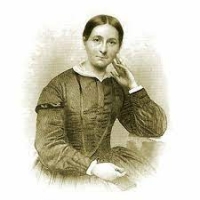
Phoebe Palmer Knapp (March 9, 1839 – July 10, 1908) was an American composer of music for hymns and an organist.
Knapp was born in New York City. Her parents were Walter C. Palmer and Phoebe Worrall Palmer. She married Joseph Fairchild Knapp, one of the founders and the second president of the Metropolitan Life Insurance Company. He had a pipe organ installed in their apartment.She and her husband were members of the John Street Methodist Episcopal Church in New York City. The hymn writer Fanny Crosby was also a member of that church and a friend of Palmer's.
Knapp was born in New York City. Her parents were Walter C. Palmer and Phoebe Worrall Palmer. She married Joseph Fairchild Knapp, one of the founders and the second president of the Metropolitan Life Insurance Company. He had a pipe organ installed in their apartment.She and her husband were members of the John Street Methodist Episcopal Church in New York City. The hymn writer Fanny Crosby was also a member of that church and a friend of Palmer's.
Joachim Raff
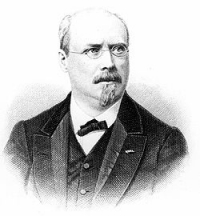
Joseph Joachim Raff (May 27, 1822 – June 24 or June 25, 1882) was a German-Swiss composer, teacher and pianist.
Dido
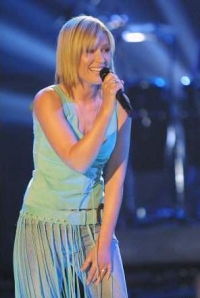
Dido Florian Cloud de Bounevialle O'Malley Armstrong (born 25 December 1971), is an English BRIT Award-winning and Grammy Award-nominated singer and songwriter.
Dido's mother, Claire (born Collins), is a French poet and her father, William O'Malley Armstrong (9 November 1938 – 22 December 2006) was an Irish publisher and former managing director of Sidgwick & Jackson.
Informally named after the mythical Carthaginian queen, Dido was educated at Thornhill Primary, City of London Girls' and Westminster School. Because she was born on Christmas Day, in childhood she celebrated, rather in the manner of the British monarch, an "official" birthday on 25 June.
After she stole a recorder from school at age five, her parents enrolled her at the Guildhall School of Music in London, England. By the time she reached her teens Dido had learned to play the piano, recorder and the violin. After her teens and whilst working as a literary agent, Dido studied law at Birkbeck, University of London, however, she never completed this course, deciding instead to take up music full-time. After learning the guitar, she showcased her skills to audiences during her 2004 Life for Rent tour.
Dido's mother, Claire (born Collins), is a French poet and her father, William O'Malley Armstrong (9 November 1938 – 22 December 2006) was an Irish publisher and former managing director of Sidgwick & Jackson.
Informally named after the mythical Carthaginian queen, Dido was educated at Thornhill Primary, City of London Girls' and Westminster School. Because she was born on Christmas Day, in childhood she celebrated, rather in the manner of the British monarch, an "official" birthday on 25 June.
After she stole a recorder from school at age five, her parents enrolled her at the Guildhall School of Music in London, England. By the time she reached her teens Dido had learned to play the piano, recorder and the violin. After her teens and whilst working as a literary agent, Dido studied law at Birkbeck, University of London, however, she never completed this course, deciding instead to take up music full-time. After learning the guitar, she showcased her skills to audiences during her 2004 Life for Rent tour.
Claude lachapelle
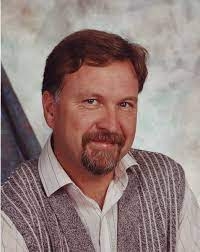
Claude Lachapelle Musical artist Songs Ritournelle Samba Cubana Lieblich Traum
Ludwig van Beethoven

Ludwig van Beethoven (/ˈlʊdvɪɡ væn ˈbeɪt(h)oʊvən/ (About this soundlisten); German: (About this soundlisten); baptised 17 December 1770 – 26 March 1827) was a German composer and pianist. A crucial figure in the transition between the classical and romantic eras in classical music, he remains one of the most recognized and influential musicians of this period, and is considered to be one of the greatest composers of all time.
Beethoven was born in Bonn, the capital of the Electorate of Cologne, and part of the Holy Roman Empire. He displayed his musical talents at an early age and was vigorously taught by his father Johann van Beethoven, and was later taught by composer and conductor Christian Gottlob Neefe. At age 21, he moved to Vienna and studied composition with Joseph Haydn. Beethoven then gained a reputation as a virtuoso pianist, and was soon courted by Prince Lichnowsky for compositions, which resulted in Opus 1 in 1795.
Beethoven was born in Bonn, the capital of the Electorate of Cologne, and part of the Holy Roman Empire. He displayed his musical talents at an early age and was vigorously taught by his father Johann van Beethoven, and was later taught by composer and conductor Christian Gottlob Neefe. At age 21, he moved to Vienna and studied composition with Joseph Haydn. Beethoven then gained a reputation as a virtuoso pianist, and was soon courted by Prince Lichnowsky for compositions, which resulted in Opus 1 in 1795.
Lionel Richie

Lionel Brockman Richie, Jr. (born June 20, 1949) is an Academy Award and Grammy award-winning American singer, songwriter, record producer, and occasional actor, who has sold more than 100 million records.
He released his self-titled debut in 1982. The album hit #3 on the music charts and sold over 4 million copies. His 1983 follow up album, Can't Slow Down, sold over twice as many copies and won the Grammy Award for the Album of the Year in 1984. His third album, Dancing on the Ceiling, which was released in 1986, spawned such hits as "Say You, Say Me", "Dancing on the Ceiling," and "Se La", but it also signified the end of his large commercial success.
In 2002, Richie's song "Running with the Night" was featured on the Rockstar North video game Grand Theft Auto: Vice City though the song was removed from later versions of the game. In 2004, he appeared on Canadian Idol as his songs were featured during a Canadian Idol week.
In November 2005, Lionel Richie performed with Kenny Rogers on a CMT Crossroads special. The show gave an informative insight into their friendship both in and out of the music world. Richie was also the headliner at a 2000 Fourth of July tribute concert with Fantasia Barrino at the Philadelphia Museum of Art. Richie released his eighth studio album entitled " Coming Home" on September 12, 2006. The first single of the album was "I Call It Love" and was premiered in July 2006, becoming his biggest hit in the U.S. in ten years. The album was an incredible success for Richie in the United States, peaking at #6. His adopted daughter Nicole Richie stars in the music video for this track.
On May 2, 2008, Lionel Richie was the 21st recipient of the George and Ira Gershwin Lifetime Achievement Award at UCLA's annual Spring Sing. In accepting the award, Richie said: "Forget about surviving 30 some odd years in the music business, Lionel Richie survived 27 years of Nicole Richie".
He released his self-titled debut in 1982. The album hit #3 on the music charts and sold over 4 million copies. His 1983 follow up album, Can't Slow Down, sold over twice as many copies and won the Grammy Award for the Album of the Year in 1984. His third album, Dancing on the Ceiling, which was released in 1986, spawned such hits as "Say You, Say Me", "Dancing on the Ceiling," and "Se La", but it also signified the end of his large commercial success.
In 2002, Richie's song "Running with the Night" was featured on the Rockstar North video game Grand Theft Auto: Vice City though the song was removed from later versions of the game. In 2004, he appeared on Canadian Idol as his songs were featured during a Canadian Idol week.
In November 2005, Lionel Richie performed with Kenny Rogers on a CMT Crossroads special. The show gave an informative insight into their friendship both in and out of the music world. Richie was also the headliner at a 2000 Fourth of July tribute concert with Fantasia Barrino at the Philadelphia Museum of Art. Richie released his eighth studio album entitled " Coming Home" on September 12, 2006. The first single of the album was "I Call It Love" and was premiered in July 2006, becoming his biggest hit in the U.S. in ten years. The album was an incredible success for Richie in the United States, peaking at #6. His adopted daughter Nicole Richie stars in the music video for this track.
On May 2, 2008, Lionel Richie was the 21st recipient of the George and Ira Gershwin Lifetime Achievement Award at UCLA's annual Spring Sing. In accepting the award, Richie said: "Forget about surviving 30 some odd years in the music business, Lionel Richie survived 27 years of Nicole Richie".
Emanuele d'Astorga
Emanuele d'Astorga (20 March 1680 – 1757, by one report) was an Italian composer known mainly for his Stabat MaterHe was born on 20 March 1680 in Augusta, Sicily. No authentic account of Astorga's life can be successfully constructed from the obscure and confusing evidence that has been until now handed down, although historians have not failed to indulge many pleasant conjectures. According to Volkmann his father, a baron of Sicily, took an active part in the attempt to throw off the Spanish yoke, but was betrayed by his own soldiers and publicly executed.
Carter Brey
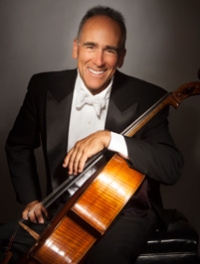
Carter Brey is an American cello virtuoso. He had a prolific solo career from 1981 until 1996 when he became the principal cellist of the New York Philharmonic, a position he still holds today.
Mango (singer)
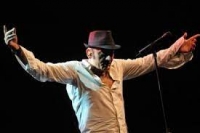
Mango, stage name of Giuseppe Mango (6 November 1954 – 8 December 2014), was an Italian singer-songwriter and musician.He was known for his style which fuses pop, rock, folk, world music and for his extensive vocal range. He is best known for the song "Oro", from his 1986 breakout album release Odissea. Other hits include "Lei verrà", "Mediterraneo", "Bella d'estate", "Amore per te", "Come Monnalisa", "Nella mia città" and "La rondine".Mango has been defined by Italian music author Mario Luzzatto Fegiz as an "authentic innovator of Italian pop music" and Allmusic considers him an "Italian rock fusion innovator".He wrote songs for Italian artists such as Patty Pravo, Loredana Bertè, Andrea Bocelli, Mietta. Part of his repertoire was performed by Italian and foreign musicians including Mina, Mia Martini, Leo Sayer, Hélène Ségara and
Antonio Carlos Jobim

Antonio Carlos Brasileiro de Almeida Jobim (January 25, 1927 in Rio de Janeiro – December 8, 1994 in New York City), also known as Tom Jobim, was a Grammy Award-winning Brazilian songwriter, composer, arranger, singer, and pianist/guitarist. A primary force behind the creation of the bossa nova style, Jobim is acknowledged as one of the most influential popular composers of the 20th century. His songs have been performed by many singers and instrumentalists within Brazil and internationally.
Louie Madrid Calleja
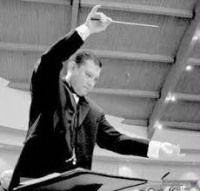
Born and raised in the Republic of the Philippines, he came to Canada in 1988. He studied music at York University and received his Bachelor of ...
Pyotr Ilyich Tchaikovsky
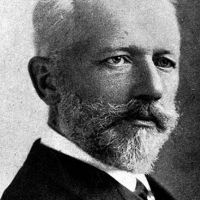
Pyotr Ilyich Tchaikovsky was a Russian composer of the romantic period, whose works are among the most popular music in the classical repertoire. He was the first Russian composer whose music made a lasting impression internationally, bolstered by his appearances as a guest conductor in Europe and the United States
Serban Nichifor
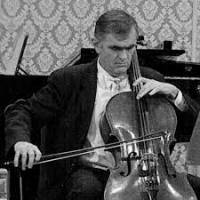
Șerban Nichifor OCB (born 25 August 1954) is a Romanian composer, cellist and music educator.Șerban Nichifor was born on 25 August 1954 to Ermil Nichifor (1916–1997) and Livia Nichifor, née Balint (1922–2017) in Bucharest, Romania. Both his parents were physicians. His father was also a musician and conductor of the Orchestra of Physicians in Bucharest.
Saint Saens

Charles-Camille Saint-Saëns (9 October 1835 – 16 December 1921) was a French composer, organist, conductor, and pianist, known especially for The Carnival of the Animals, Danse Macabre, Samson and Delilah, Havanaise, Introduction and Rondo capriccioso, and his Symphony No. 3 (Organ Symphony).
Music theory

Music theory is the study of the practices and possibilities of music. The Oxford Companion to Music describes three interrelated uses of the term "music theory"
Gaspar Cassado
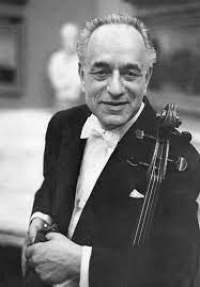
Gaspar Cassadó i Moreu was a Spanish cellist and composer of the early 20th century. He was born in Barcelona to a church musician father, Joaquim Cassadó, and began taking cello lessons at age seven
Rene de Boisdeffre
René de Boisdeffre was a French composer. He is the author of some 60 pieces of chamber music as well as a few pieces for piano and vocal music. General de Boisdeffre was his cousin.
Pachelbel

Johann Pachelbel (baptized September 1, 1653 – buried March 9, 1706) was a German Baroque composer, organist and teacher who brought the south German organ tradition to its peak. He composed a large body of sacred and secular music, and his contributions to the development of the chorale prelude and fugue have earned him a place among the most important composers of the middle Baroque era.
Pachelbel's work enjoyed enormous popularity during his lifetime; he had many pupils and his music became a model for the composers of south and central Germany. Today, Pachelbel is best known for the Canon in D, the only canon he wrote. In addition to the canon, his most well-known works include the Chaconne in F minor, the Toccata in E minor for organ, and the Hexachordum Apollinis, a set of keyboard variations.
Pachelbel's music was influenced by southern German composers, such as Johann Jakob Froberger and Johann Kaspar Kerll, Italians such as Girolamo Frescobaldi and Alessandro Poglietti, French composers, and the composers of the Nuremberg tradition. Pachelbel preferred a lucid, uncomplicated contrapuntal style that emphasized melodic and harmonic clarity. His music is less virtuosic and less adventurous harmonically than that of Dieterich Buxtehude, although, like Buxtehude, Pachelbel experimented with different ensembles and instrumental combinations in his chamber music and, most importantly, his vocal music, much of which features exceptionally rich instrumentation. Pachelbel explored many variation forms and associated techniques, which manifest themselves in various diverse pieces, from sacred concertos to harpsichord suites.
Pachelbel's work enjoyed enormous popularity during his lifetime; he had many pupils and his music became a model for the composers of south and central Germany. Today, Pachelbel is best known for the Canon in D, the only canon he wrote. In addition to the canon, his most well-known works include the Chaconne in F minor, the Toccata in E minor for organ, and the Hexachordum Apollinis, a set of keyboard variations.
Pachelbel's music was influenced by southern German composers, such as Johann Jakob Froberger and Johann Kaspar Kerll, Italians such as Girolamo Frescobaldi and Alessandro Poglietti, French composers, and the composers of the Nuremberg tradition. Pachelbel preferred a lucid, uncomplicated contrapuntal style that emphasized melodic and harmonic clarity. His music is less virtuosic and less adventurous harmonically than that of Dieterich Buxtehude, although, like Buxtehude, Pachelbel experimented with different ensembles and instrumental combinations in his chamber music and, most importantly, his vocal music, much of which features exceptionally rich instrumentation. Pachelbel explored many variation forms and associated techniques, which manifest themselves in various diverse pieces, from sacred concertos to harpsichord suites.
Bob Gaudio
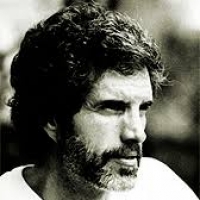
Robert John "Bob" Gaudio (born November 17, 1942) is an American singer, songwriter, musician, and record producer, and the keyboardist and backing vocalist of the Four Seasons. Gaudio wrote or co-wrote and produced the vast majority of the band's music, including hits like "Sherry" and "December, 1963 (Oh, What a Night)". Though he no longer performs with the group, Gaudio and lead singer Frankie Valli remain co-owners of the Four Seasons brand.
Grieg

Edvard Hagerup Grieg (/ɡriːɡ/ GREEG, Norwegian: ; 15 June 1843 – 4 September 1907) was a Norwegian composer and pianist. He is widely considered one of the leading Romantic era composers, and his music is part of the standard classical repertoire worldwide. His use and development of Norwegian folk music in his own compositions brought the music of Norway to international consciousness, as well as helping to develop a national identity, much as Jean Sibelius and Bedřich Smetana did in Finland and Bohemia, respectively.
Grieg is the most celebrated person from the city of Bergen, with numerous statues depicting his image, and many cultural entities named after him: the city's largest concert building (Grieg Hall), its most advanced music school (Grieg Academy) and its professional choir (Edvard Grieg Kor). The Edvard Grieg Museum at Grieg's former home, Troldhaugen, is dedicated to his legacy.
Grieg is the most celebrated person from the city of Bergen, with numerous statues depicting his image, and many cultural entities named after him: the city's largest concert building (Grieg Hall), its most advanced music school (Grieg Academy) and its professional choir (Edvard Grieg Kor). The Edvard Grieg Museum at Grieg's former home, Troldhaugen, is dedicated to his legacy.
Frank von Suppe
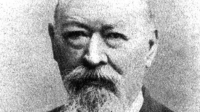
Franz von Suppé was an Austrian composer of light operas and other theatre music. He came from the Kingdom of Dalmatia, Austro-Hungarian Empire. A composer and conductor of the Romantic period, he is notable for his four dozen operettas.
Manuel Penella Moreno
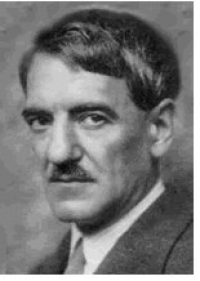
Manuel Penella Moreno was a Spanish composer. His father was the composer Manuel Penella Raga. His daughter Magdalena Penella Silva married the politician Ramón Ruiz Alonso; through her, he was the grandfather of actresses Emma Penella, Elisa Montés and Terele Pávez.
Fermo Dante Marchetti
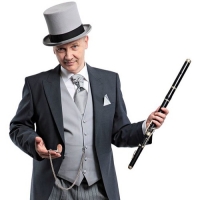
Fermo Dante Marchetti (born Dante Pilade Marchetti, 28 August 1876 – 11 June 1940) was an Italian composer and songwriter, best known for the music for the song "Fascination". He was born in Massa Carrara, Tuscany, Italy, and died in Paris, France.
Mikhail Glinka
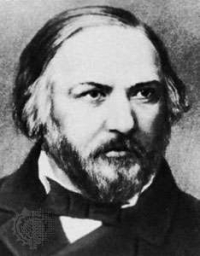
Mikhail Ivanovich Glinka (Russian: Михаи́л Ива́нович Гли́нка, tr. Mikhaíl Ivánovich Glínka, IPA: (About this soundlisten); 1 June 1804 – 15 February 1857) was the first Russian composer to gain wide recognition within his own country, and is often regarded as the fountainhead of Russian classical music. Glinka's compositions were an important influence on future Russian composers, notably the members of The Five, who took Glinka's lead and produced a distinctive Russian style of music.
Hiroaki Honshuku
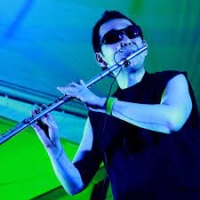
Hiroaki Honshuku Musical artist Say No to Drag Are You Blue · 1995 A-No-Ne Are You Blue · 1995 Not That Silent Night
Not That Silent Night · 2006
Not That Silent Night · 2006
Peter Heidrich
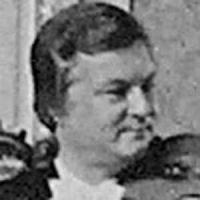
erman classical violinist and composer. Best known for his Variations On Happy Birthday. He also contributed soundtrack music for Europa radioplays in ...
 Sheet Music Network is a site for those who wants to access popular sheet music easily,
letting them download the sheet music for free for trial purposes.
It's completely free to download and try the listed sheet music, but you have to delete the files after 24 hours of trial.
Don't forget, if you like the piece of music you have just learned playing,
treat the artist with respect, and go buy the original sheet music.
Sheet Music Network is a site for those who wants to access popular sheet music easily,
letting them download the sheet music for free for trial purposes.
It's completely free to download and try the listed sheet music, but you have to delete the files after 24 hours of trial.
Don't forget, if you like the piece of music you have just learned playing,
treat the artist with respect, and go buy the original sheet music.
